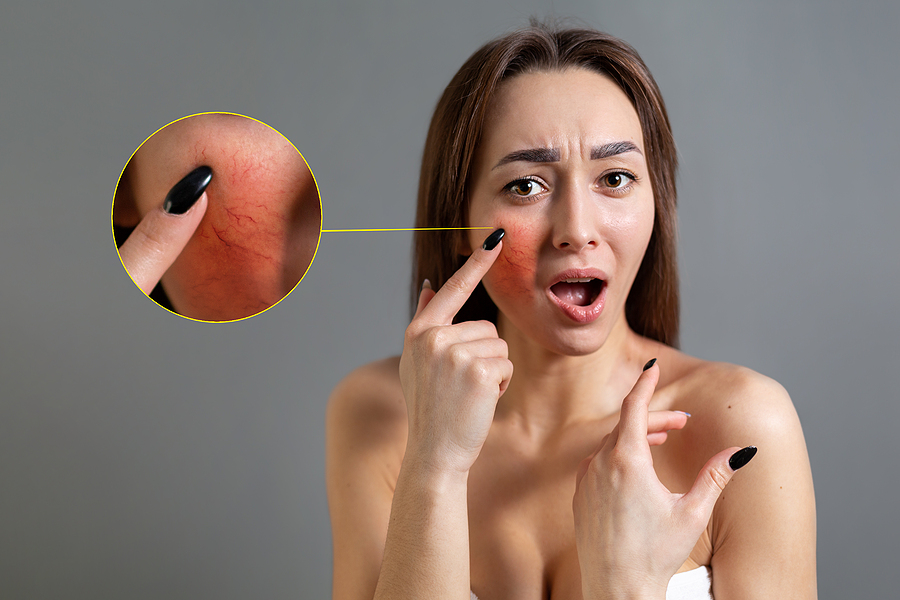Birth control, hormone replacement therapy and more
Hormones are the chemical messengers in the body, and for women diagnosed with Systemic Lupus Erythematosus (SLE), these messages may be inconsistent. SLE — the most common form of lupus — is an autoimmune disease causing inflammation which can affect many parts of the body, including joints, lungs, kidneys, skin, and even the nervous system. Because SLE is hormonally-driven and primarily affects women in their 20’s-40’s, birth control options and Hormone Replacement Therapy (HRT) are of primary concern.
The mechanics are a bit complicated. As hormones circulate through the bloodstream, they can be disrupted at any point, essentially breaking down the signal between the brain and the target cells – where specific hormones are intended to do their work. This is important for women carrying an SLE diagnosis.
The question becomes, should women with lupus take birth control pills or hormone replacement therapy? The Safety of Estrogens in Lupus Erythematosus National Assessment (SELENA) studies, focused on use of oral contraceptives and on postmenopausal hormone replacement therapy in women with lupus. The researchers’ goal was to determine if exogenous female hormones (or hormones coming from outside the body) may trigger disease activity. The studies showed that estrogen enhances the autoimmune response and androgens and progestins suppress it. The ratios and levels of these chemicals found in the joint fluids and blood of women in the study showed a hormonal connection worth considering.
The good news is, while these studies detected a slight elevation in disease symptoms, they also indicate that women with SLE can tolerate low-dose exogenous hormones with a relatively small risk of mild flare ups. In other words, taking certain hormones can be considered safe for women with lupus, when all the factors are taken into consideration.
Birth control
Contraceptive options for women with SLE depend on the individuality of each patient. Not only does the type and method of birth control matter, but so do medical history and autoantibody test results.
The concern is two-fold for oral contraceptives containing estrogen: lupus flare ups and risk of blood clots (thrombosis). Thrombosis risk may already be elevated in certain instances for women with lupus, making estrogen-containing contraception an inappropriate choice. Progesterone-only alternatives, including the progesterone pill, injection, and IUD, are not associated with an increased risk of blood clots.
Historically, research on the use of birth control pills and lupus produced somewhat contradictory results, but recent studies have shown that low-dose estrogen birth control pills are likely safe for women with mild forms of lupus and who have minimal risk of clotting.
As far as increasing a woman’s risk of developing lupus by taking oral contraceptives, the message is unclear. Data collected in 2009, analyzed 1.7 million women ages 18 to 45, and found a small subgroup of women with a genetic predisposition to lupus, who – when taking birth control pills containing both synthetic estrogens and a progestin — may be more susceptible to the disease. The overall risk is still small, but taking birth control pills with a family or personal history of lupus should be considered before use.
Hormone replacement therapy
Overall, hormone replacement therapy is being used less often due to the potential increased risk of heart disease, thrombosis, and breast cancer. For women with SLE, the risk of blood clots and cardiovascular events is oftentimes already elevated, warranting concern. The issues with lupus and HRT are three-fold.
Although studies show that estrogen therapy for women with lupus, who are also menopausal, does not increase their chance of flare-ups, the reality is the studies used synthetic hormone replacement therapy, which slightly increased the risk of mild to moderate lupus flare-ups. Women with lupus who were taking HRT in the study, were 20 percent more probable to exhibit lupus symptoms, although did not need high doses of steroids or hospitalization for treatment.
Another consideration for women with SLE who experience early and severe symptoms of menopause, and who also take cyclophosphamide – a medication that alleviates inflammatory damage – are at risk for premature ovarian failure (POF). While some clinicians may support the use of HRT to help severe menopause symptoms in women with lupus, it is my experience that natural alternatives may be a better choice for relief to avoid other potentially serious complications.
Finally, women with lupus already have an increased risk of blood clots and heart disease, and the use of conventional hormone replacement therapy is connected to an increased risk of these conditions, even for healthy women. Women with stable, inactive SLE, and relatively low autoimmune factors should only consider low-dose, short-term HRT after making a very careful and informed choice with their healthcare provider.
Theories and controversies
Estrogen is the one of the leading components about why lupus is more common in women than in men. While estrogen is known to be play an important role in the development of of lupus, its specific relationship to autoimmune diseases is not clear. Progress is being made, but the connection between lupus and estrogen is highly controversial. When it comes to the relationship between the immune system and estrogen, healthy functioning requires just the right amount – not too much estrogen, and not too little. The ratios of particular types of estrogen also play a role in autoimmune function. There are multiple factors including genetic variations, toxic exposures, poor food choices, lifestyle stressors and prescription drugs — including synthetic hormone drugs — which may cause impairment.
Clinicians caring for women with SLE often face difficult decisions regarding the use of birth control and HRT. Although it is now generally considered safe, when referring to studies, evidence can seem a bit murky unless the patient has a specific counter-indication to exogenous hormones related to specific medical conditions.
But there are many avenues to explore. It’s important to note that many elements can be controlled. Even if you do have lupus, you can choose to support your internal hormonal balance in the choices you make every day. In addition, you can slowly reset your hormonal balance and lessen your inflammation by eating an anti-inflammatory diet, nurturing your emotional well-being, and exploring other natural alternatives before deciding to take prescription-strength hormones.
Of special interest to us at Women to Women, is that hormone therapy with bioidentical, natural estrogens and progesterone, has not yet been specifically studied in people with lupus, and the impact of this type of therapy is not yet known. But we are supporting efforts to explore these avenues.
Quality of life
Sometimes a woman’s quality of life or long-term health is an issue with a diagnosis of lupus, and the benefits of hormone replacement therapy may outweigh the risks. As an experienced OB/GYN Nurse Practitioner, I carefully weigh the options for SLE patients with both a person-centered as well as a disease-oriented focus. When a woman wants to try a course of HRT, we recommend she have a comprehensive hormone panel, to gauge the levels of all her sex hormones and their various metabolites in her body. With the results of that testing, we can then consider various types of bioidentical HRT, along with supplements that abate inflammation and facilitate estrogen metabolization.
We will regularly meet with that patient in follow-up, to see how well our approach is working for her. Together we keep track and watch for changes in her symptoms and overall well-being, and periodically retest her hormone levels, adjusting her dosage to the lowest effective amount for the shortest period of time needed. All the while, women can continue to gently care for themselves by making daily choices that enhance hormonal balance and restore harmony.
If you want to learn more, please read our articles on lupus. There are many related issues covered in the sections on inflammation, menopause and perimenopause, and phytotherapy for hormonal balance.








